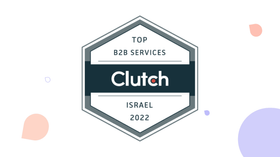SEO vs PPC: Which Is Best For Your Business?
Not sure what to choose between SEO and PPC? We've asked the experts, and here are the tips they shared with us so you can decide on what's best for your business.
Updated December 31, 2024.

When it comes to digital marketing, businesses often grapple with the decision of whether to prioritize Search Engine Optimization (SEO) for organic growth or Pay-Per-Click (PPC) campaigns for immediate visibility. The truth is that both SEO and PPC are essential components of a successful strategy, and their strengths should be leveraged in tandem to maximize results.
We asked the best Mayple-vetted paid advertising agencies what they think about SEO vs PPC, and which one would be better for businesses in 2025. Keep reading if you want to know what we found out.
Understanding the role of SEO in long-term growth
SEO is a long-term investment that focuses on building authority and visibility in organic search results. By optimizing your website's content, structure, and technical aspects, you create a sustainable traffic source that can support your business growth over time.
A good SEO strategy can help you attract high-quality leads without recurring costs per click, making it a highly cost-effective approach as your business scales. It also establishes your brand as a trustworthy resource in your industry, which compounds over time to grow your audience.
For businesses in their early stages, SEO serves as an essential foundation. Channels like partnerships, organic brand development, and content marketing help you build a strong presence without requiring a substantial budget.
While it may take time to see significant results, the traffic and leads generated through SEO represent an asset that continues to pay off long after the initial investment.
Advantages of investing in SEO
Long story short, SEO is all about long-term growth, but if you need a breakdown of what are some of the most important pros of investing in SEO, here they are:
Awareness & branding opportunity
SEO enhances your visibility in search engine results, allowing potential customers to discover your brand more easily. By consistently appearing for relevant keywords, your business builds recognition, positioning itself as an authority in your niche. This increased visibility fosters stronger brand awareness over time.
Building trust & credibility with the audience
A key advantage of SEO is that it helps establish trust and credibility with your audience. Ranking highly on search engine result pages (SERPs) signals to users that your site is reliable and authoritative. Optimizing your website with quality content, fast-loading pages, and strong backlinks improves user confidence and builds lasting relationships.
Versatile channel
SEO is a multifaceted channel that can complement various forms of marketing. Whether integrating with content marketing, social media, or paid ads, SEO fits seamlessly into a broader strategy. Its versatility allows businesses to target different customer touchpoints effectively.
More free traffic for your site
One of the most significant benefits of SEO is the generation of organic, free traffic. Unlike paid advertising, where traffic stops as soon as you stop investing, SEO builds a steady flow of visitors without ongoing costs. This free traffic grows with time and can significantly impact your business’s success.
Good return on investment
SEO offers excellent ROI by driving long-lasting results at a relatively low cost. Once optimized, your site continues to attract organic traffic without the recurring costs associated with paid ads. The leads gained through SEO are also highly relevant, making conversions more likely.
Sustainable and scalable
SEO is a sustainable growth strategy because improvements build upon themselves. With consistent efforts and regular updates, your rankings are likely to improve over the long term. Additionally, SEO is scalable—whether you're a small business or a large enterprise, its practices can be tailored to suit your goals and resources.
Good scope for any business
No matter your industry or size, SEO provides opportunities for growth. From local businesses targeting nearby customers to global enterprises seeking a wider audience, every business can leverage SEO to meet its objectives. This adaptability makes it a crucial tool across sectors and niches.
Disadvantages of SEO
Nothing is ever perfect and SEO makes no exception. If you are considering making an investment in search engine optimization, you should be aware of some of the disadvantages as well:
It's time-consuming
One of the primary downsides of SEO is the time it takes to see measurable results. Building organic search rankings requires consistent effort in creating quality content, optimizing website structure, and securing backlinks, which can take months or even years depending on the competition within your niche.
Patience and persistence are key, but businesses seeking immediate returns might find the timeline challenging.
Highly competitive landscape
The online space is becoming increasingly saturated, especially in industries with high demand. Competing for top rankings against established websites with significant authority and resources can be daunting.
Smaller businesses or new websites may find it particularly difficult to break through, as larger competitors often dominate the most lucrative keywords. This necessitates a strategic and often costly approach to stand out.
Dependency on algorithms
Search engine optimization is heavily influenced by algorithm changes implemented by platforms like Google. These updates can significantly impact rankings, causing businesses to constantly adapt their strategies. This dependency creates uncertainty, as what works today may not be as effective tomorrow, requiring ongoing monitoring and flexibility to remain competitive.
Emergence of AI-driven search
The rise of artificial intelligence in search engines is reshaping the SEO landscape. AI tools, like Google’s Bard or Microsoft’s integration of ChatGPT, prioritize concise, AI-generated answers to queries, potentially diverting traffic away from websites.
What all this means is that businesses must adapt their strategies to account for AI-driven search elements, such as optimizing for voice search and featured snippets, to maintain visibility.
If you are looking for more information on where SEO will go, check out our SEO predictions for 2025 article right here.
The immediate benefits of PPC campaigns
On the other hand, PPC offers immediate results, allowing businesses to appear at the top of search results and drive targeted traffic quickly. Whether you need to generate sales, boost website traffic, or test new strategies, PPC can deliver measurable outcomes in a shorter timeframe.
The beauty of PPC lies in its ability to adapt on the fly—by adjusting ad copy, landing pages, or offers, you can optimize performance and dial in your campaigns for maximum return on investment.
For mature businesses or startups that have achieved product-market fit, PPC serves as the fuel that accelerates growth. It provides predictable, scalable results, making it an excellent strategy for those who need a quick boost in demand.
However, PPC is more akin to renting traffic—you pay for each click, and when your budget runs out, so does the traffic. This makes it critical to pair PPC with other strategies for sustainable growth.
Advantages of PPC
PPC offers a wealth of advantages that make it a powerful tool for businesses looking to drive immediate and effective results. Below are some key benefits of PPC campaigns:
Specific targeting
PPC allows businesses to zero in on their ideal audience using tools like demographic filters, location settings, and interest-based targeting. This precision ensures your ads reach people who are most likely to convert.
Works faster than SEO
While SEO requires time to deliver results, PPC campaigns can generate instant visibility and traffic once launched, making it ideal for achieving short-term goals or boosting immediate demand.
DO keep in mind that PPC is not a vending machine: you don't put coins in and get conversions out. It's not instant, and it does need time to work at peak efficiency too (unfortunately, nothing is ever a "quick solution" when it comes to marketing/)
Above-the-fold positioning
PPC ads appear at the top of search results, ensuring your business claims the most visible and coveted space on the page, which draws attention even ahead of organic results.
Dynamic advertisements
PPC platforms like Google Ads offer dynamic ad options that automatically adjust to match user keywords, enhancing relevance and click-through rates.
Engaging ads
With creative ad formats, such as video, carousel, or interactive ads, PPC enables businesses to craft highly engaging campaigns that resonate with their audience. This allows you to create ads people are attracted to and even enjoy (which is, pretty much, the whole point of running ads anyway.)
Budget control
PPC provides full control over your advertising spend. You can set daily or campaign-specific budgets, ensuring you operate within financial constraints while optimizing results.
Speedy and agile
Campaigns can be set up, adjusted, and optimized quickly, allowing businesses to respond to market changes, seasonality, or specific events with remarkable agility. This is particularly important for businesses that need to move fast, and adapt even faster.)
Data collection
PPC offers valuable data insights about audience behavior, click-through rates, and conversion patterns, enabling businesses to refine their strategies based on concrete performance metrics. Ultimately, you can use this data to inform other areas of your marketing efforts, such as SEO, content creation, or product development.
A/B testing
With PPC, businesses can run A/B tests to compare different creatives, headlines, or targeting options, ensuring you identify what resonates most effectively with your audience.
More stable than other channels
Unlike social platforms, where algorithm changes can disrupt visibility, PPC offers consistent results as long as campaigns are effectively managed and funded.
This is not to say things in PPC don't change -- but if you're looking for a channel that will likely be (more or less) the same in the following years, PPC is it (do keep in mind the industry is bracing up for massive changes here too, especially in the cookies and privacy domain.)
Disadvantages of PPC
While PPC can be a highly effective marketing channel, it is not without its drawbacks. Understanding these disadvantages is crucial for creating a balanced and efficient advertising strategy. Below are some of the key challenges associated with PPC:
High costs
Running PPC campaigns can become expensive, particularly in competitive industries where bid prices for keywords are higher. Without proper management, costs can quickly spiral out of control, reducing return on investment (ROI).
Requires constant monitoring
PPC campaigns demand ongoing attention to ensure they are optimized and generating desired results. Neglecting campaigns can lead to reduced performance, wasted spending, and missed opportunities to improve.
Click fraud and invalid clicks
One of the risks of PPC is the potential for click fraud or invalid clicks, where competitors or bots click on ads with malicious intent. This can drain budgets and make it challenging to accurately measure campaign success.
Questions to ask when deciding between SEO vs PPC
Even with all the elements of the problem right before your eyes, deciding between SEO and PPC can still be a challenge. Here are some questions you should ask yourself when making this decision:
- What is my goal or objective?
- How much budget am I working with?
- How quickly do I need to see results?
- Do I have the resources and expertise to manage PPC campaigns effectively?
- Is my business in a competitive industry where PPC may be more expensive?
- Are there any major events or seasonality that could impact campaign performance?
- Am I looking for long-term sustainable growth, or do I need a quick boost in demand?
- Do I prefer immediate visibility and traffic (PPC) or long-term organic traffic (SEO)?
- What kind of keyword am I looking for?
- How do the results look like for my business?
- Do I need localization?
- What do you want to prioritize: cost or time?
An integrated approach: the way to the future
Choosing between SEO and PPC ultimately depends on your business goals, but an integrated approach often yields the best outcomes. For example, PPC can complement your SEO efforts by providing data on high-performing keywords, which can then be targeted in your organic strategy.
Additionally, PPC can drive the necessary traffic and engagement metrics that boost your search engine rankings, especially as traffic and engagement remain critical ranking factors.
Having a balanced strategy allows businesses to achieve both short-term wins and long-term growth. PPC drives immediate demand, while SEO lowers your cost per acquisition (CPA) over time by turning organic traffic into a reliable source of leads and sales.
For most businesses, combining the strengths of both channels allows them to remain competitive in an ever-changing digital landscape.
Here are some ways you can use PPC and SEO together, and get the best of both worlds:
Use PPC to promote organic content
One effective way to combine PPC and SEO is leveraging paid ads to promote your best-performing organic content. By using PPC campaigns, you can bring more visibility and traffic to blog posts, guides, or other resources that already perform well organically. This not only amplifies your content's reach but also increases the likelihood of backlinks, shares, and engagement, which can further boost your SEO performance. PPC allows you to target the audience most likely to benefit from your content, making it a strategic investment in growing both paid and organic efforts.
Retargeting organic visitors
Not all visitors convert on their first visit, which is where retargeting comes into play. By using PPC to retarget organic visitors, you can re-engage users who previously interacted with your website but didn’t take action. Retargeting keeps your brand top-of-mind and encourages these visitors to return and convert. This seamless handoff between organic traffic and PPC ads ensures you maximize the potential of every site visitor without losing prospects to competitors.
Go for organic and paid SERPs
Owning real estate on both organic and paid search engine results pages (SERPs) can significantly increase your visibility. By targeting the same keywords through both SEO and PPC campaigns, you dominate more space in search results, making it harder for competitors to gain traction. This dual strategy not only captures users at different points of their buyer's journey but also strengthens brand credibility by building trust with users who see your business in both organic and paid listings.
Use PPC to test SEO
PPC campaigns can serve as a powerful testing ground for SEO strategies. Before committing to long-term SEO efforts, you can use PPC to test the effectiveness of specific keywords, headlines, and calls to action. By analyzing the performance of these elements in paid campaigns, you gain valuable data on which strategies are likely to succeed organically. This allows you to refine your SEO approach and focus resources on initiatives with proven potential, saving time and optimizing results.
Final thoughts
For businesses weighing "SEO vs. PPC," the best answer is "both."
SEO provides a strong foundation for sustainable traffic growth, while PPC allows you to generate results quickly and test strategies in real time.
By recognizing the unique strengths of each channel, businesses can create a complementary strategy that optimizes their digital marketing efforts for both the present and the future. Whether you're just getting started or scaling your operations, investing in both SEO and PPC will ensure a well-rounded and effective approach to achieving your goals.
If you have to choose, however, it's crucial to prioritize your specific business objectives and weigh the pros and cons of each channel. Consider working with a digital marketing agency or consultant to help you develop an integrated strategy that aligns with your goals and budget (Mayple can help you hire a vetted expert or team for your digital marketing needs, by the way.)









